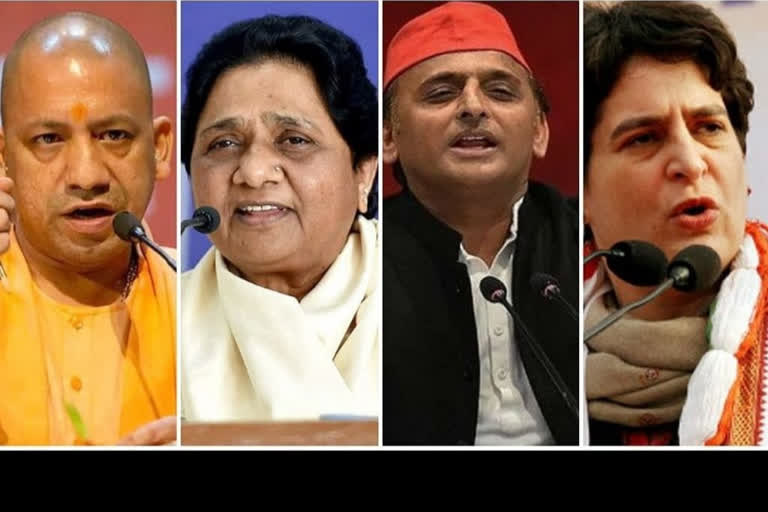Lucknow: Coalition politics in Uttar Pradesh did not succeed much. The situation remained the same more or less between 1967 and 2019. That is why, the ruling Bharatiya Janata Party and its main opponent Samajwadi Party, instead of having an alliance with major parties, are preferring to tie up with smaller ones with an eye on grabbing the votes of a particular caste.
In the upcoming UP assembly elections, the straight contest is between the two major parties-BJP and SP.
In Purvanchal and Awadh region, the Samajwadi Party has been focusing on Om Prakash Rajbhar's party, while, BJP has been relying on Apna Dal and Nishad Party. On the other hand, in the western UP, to make a dent in the Jat vote bank, the SP has made a political understanding with Rashtriya Lok Dal (RLD) party.
Whereas, another leading party-Bahujan Samaj Party- which had a bitter experience with alliances in 2019, has resolved to go it in alone in 2022 polls. But the grapevine has it that BSP supremo Mayawati has been trying to make political ties with Asaduddin Owaisi's party AIMIM.
Coming to the Congress party, no one is showing interest to tie up with the grand old party since Congress has eroded its vote share in Uttar Pradesh over the years.
Interestingly, if one looks at the 'coalition politics' in the past 50 years, 'the permutation and combination' of the alliance politics never became successful in UP.
The first experiment of 'coalition politics' was done in Uttar Pradesh in 1967. Choudhary Charan Singh had formed the government while making an alliance with Bharatiya Lok Dal, Left party and Jan Sangh. But, the government didn't survive for more than a year.
Again in 1977 during the Emergency, the hope of running a coalition government emerged in UP, which too 'fell apart' when the leaders of the alliance government, wanted to fulfill their 'own ambition'.
Mulayam Singh Yadav and Kanshi Ram came forward to form a coalition government in UP, but this alliance also did not last long and in 1995 'broke' when the 'guesthouse scam' surfaced.
In 1996 and 2002 also, coalition experiments were tried out, but, this time around also, they failed miserably.



